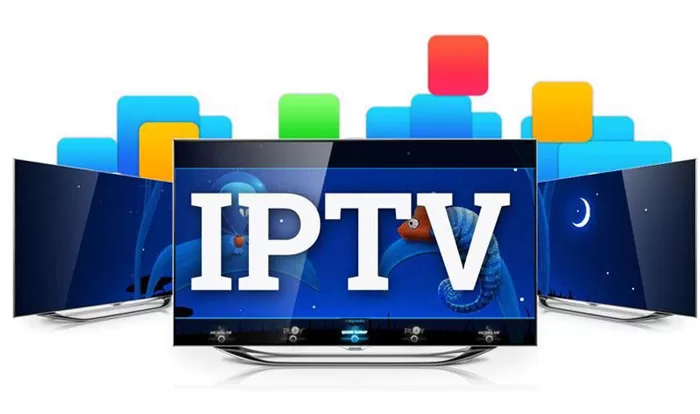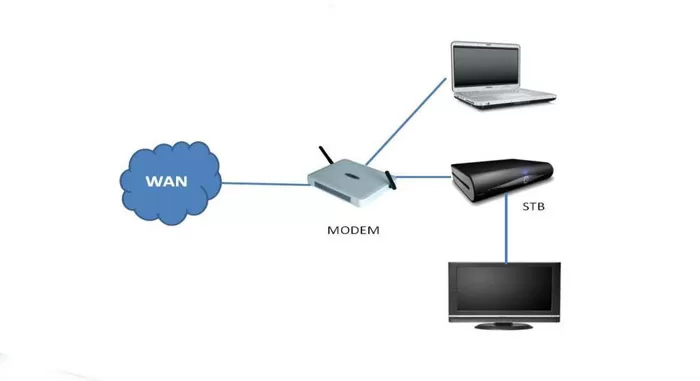In our current era, our use of television has changed dramatically and pivotally. The so-called Internet Protocol Television, known as IPTV, has emerged as a widespread option for obtaining content published on television through the Internet. This article aims to provide a comprehensive guide to IPTV, by explaining some information about it, including: What is it? How to use it? and what devices are required? Is it a free or paid service? By understanding the basics of IPTV, users can make informed decisions about accessing their favorite TV shows, movies and live channels.
What is IPTV and How Do You Use It?

IPTV is a technology that delivers television content through internet protocol networks. Instead of traditional broadcast methods like satellite or cable, IPTV uses internet connections to stream media content directly to users’ devices. This allows viewers to access a wide range of digital TV channels, on-demand content, and even interactive features.
To use IPTV, users need an internet connection and a compatible device (such as a smart TV, computer, smartphone, or dedicated IPTV set-top box). Users can access IPTV services through dedicated apps or software provided by IPTV service providers. These apps allow users to navigate through channel lists, select programs, and watch content in real-time or on-demand.
clslearn offers you the best courses in the course of Microsoft Azure Administrator
Benefits of IPTV:
- Wide Range of Content:
IPTV offers an extensive selection of TV channels, including local, regional, and international options. Users can access a variety of content genres, such as news, sports, entertainment, movies, documentaries, and more. Additionally, IPTV services often provide on-demand libraries with a vast collection of movies, TV series, and other video content.
- Flexibility and Convenience:
With IPTV, viewers have the flexibility to watch their favorite shows whenever and wherever they choose. They can access IPTV services on multiple devices, allowing for personalized viewing experiences. Whether at home, on the go, or while traveling, users can enjoy their preferred content without being tied to a specific location or schedule.
- Interactive and On-Demand Features:
IPTV services often come with interactive features that enhance the viewing experience. Users can pause, rewind, or fast-forward live TV programs, enabling them to control their viewing in real-time. Additionally, on-demand libraries enable users to explore a vast catalog of movies and shows, giving them the freedom to watch what they want, when they want.
- High-Quality Streaming:
IPTV delivers content in high-definition (HD) and even ultra-high-definition (UHD) resolutions, providing viewers with a superior visual experience. As long as users have a stable and fast internet connection, they can enjoy seamless streaming without buffering or pixelation issues.
- Cost-Effective:
Compared to traditional cable or satellite subscriptions, IPTV services often offer more affordable pricing options. Users can choose from various subscription plans based on their preferences and budget, eliminating the need for expensive hardware installations or long-term contracts.
- Multi Screen Viewing:
IPTV allows for multi screen viewing, enabling users to watch different channels or content simultaneously on multiple devices. This is especially beneficial for households with diverse viewing preferences, as each family member can access their preferred shows on their own devices.
get to know : UNDERSTANDING DOCKER SWARM CORE PRINCIPLES AND CHARACTERISTICS
Does IPTV Need a Device?
Yes, IPTV requires a device to access and stream content. The choice of device depends on personal preference and availability. Some popular devices used for IPTV include:
- Smart TVs: Many modern smart TVs come with built-in IPTV support, allowing users to directly install IPTV apps or access IPTV services through pre-installed apps.
- Computers: IPTV can be accessed on desktop or laptop computers through web browsers or dedicated IPTV software. Users can stream content directly or connect their computers to a TV for a larger viewing experience.
- Smartphones and Tablets: IPTV apps are available for iOS and Android devices, enabling users to watch TV content on the go. These apps offer similar functionality to other devices, providing access to live channels and on-demand content.
- IPTV Set-Top Boxes: Dedicated IPTV set-top boxes, such as MAG boxes or Roku devices, are designed specifically for IPTV services. These devices connect to the TV and provide a user-friendly interface for accessing IPTV content.
Is IPTV Free or Paid?

The availability of free or paid IPTV services varies. While there are some free IPTV services available, they often come with limitations such as limited channel selection, lower video quality, and potential instability. Free IPTV services may also be subject to frequent advertisements.
On the other hand, paid IPTV services offer a more comprehensive and reliable experience. Paid IPTV providers typically offer a wider range of channels, including premium content, sports channels, and international programming. They often provide better video quality, additional features like DVR functionality, and reliable customer support.
It’s important to note that accessing copyrighted content through unauthorized IPTV services is illegal and may lead to legal consequences. Users should always ensure they are using legitimate and licensed IPTV services to avoid any legal issues.
As we said at the beginning of the article, IPTV has brought about a major change in the way we consume and receive television content, because it is considered a flexible and convenient alternative to traditional broadcasting methods. By understanding what IPTV is and how to use it, users can choose the right devices and access their favorite TV shows, movies and live channels. Although there are free IPTV services, paid IPTV services provide an exciting and exceptional experience that has many benefits and features, so that it is considered more comprehensive than traditional and other methods. It is necessary to use licensed and legitimate IPTV services because it is necessary to preserve the copyright of others and ensure that they do not face legal problems.
























